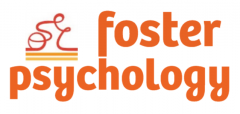We offer a range of therapies within a strengths based approach to support our clients and families. This allows us to customise and tailor interventions for each client based on individual client needs. Following are brief descriptions of some of the therapies offered.
Acceptance and Commitment Therapy (ACT)
ACT is a talking therapy and it’s aim is to help people accept what is out of their control and commit to taking action that will improve their life. ACT takes the stance that thoughts and emotions are normal and it is the struggle with the thoughts or emotions that is the problem. Therefore we teach you how to manage the struggle with thoughts and emotions and identify the things that are important in life (i.e., values) and explore the different aspects of ourselves (i.e., being a daughter, scholar, sports person, partner, parent, friend etc). Research supports the effectiveness of ACT when working with depression, anxiety, pain, panic attacks plus a number of other difficulties. ACT is considered a trans diagnostic therapy, this means that the same strategies can be used to assist with a number of difficulties and life circumstances.
See actmindfully.com.au for further information about ACT.
ACT Group Therapy
FosterPsychology offers group therapy based on ACT philosophy and strategies. Group courses run for 10 weeks for one and a half hours each session. Being a part of a group is empowering for all members as they have the opportunity to share with others experiencing similar difficulties. The support and energy of a group is healing and validating and encourages motivation and participation. Email us at lyn@fosterpsychology.co.nz to find out when the next group course starts.
Eye Movement Desensitisation Reprocessing (EMDR)
EMDR is a psychotherapy originally developed by Francine Shapiro in 1989 to treat traumatic stress. However it has also proven successful in treating mood and anxiety disorders as well as attachment and relational difficulties. EMDR suggests that disturbing memories are the cause of suffering and when the memories are triggered in everyday life they overwhelm people’s normal coping mechanisms. Treatment involves accessing the memories and images and processing them to an adaptive resolution. This is achieved using bilateral stimulation such as side to side eye movements while clients hold in mind the traumatic memory.
See emdr.org.nz for further information about EMDR
Cognitive Behavioural Therapy (CBT)
CBT is a talking therapy which focuses on our thinking, feelings, and body sensations and how these things influence our behaviour. CBT uses strategies such as finding evidence that supports or disproves our thinking and highlights how one thought leads to another thought or action and looks at ways to interrupt that process. CBT is well researched and supported showing effectiveness in treating mood and anxiety difficulties, panic attacks, obsessive compulsive disorder plus other difficulties.
See aacbt.org for further information about CBT.
